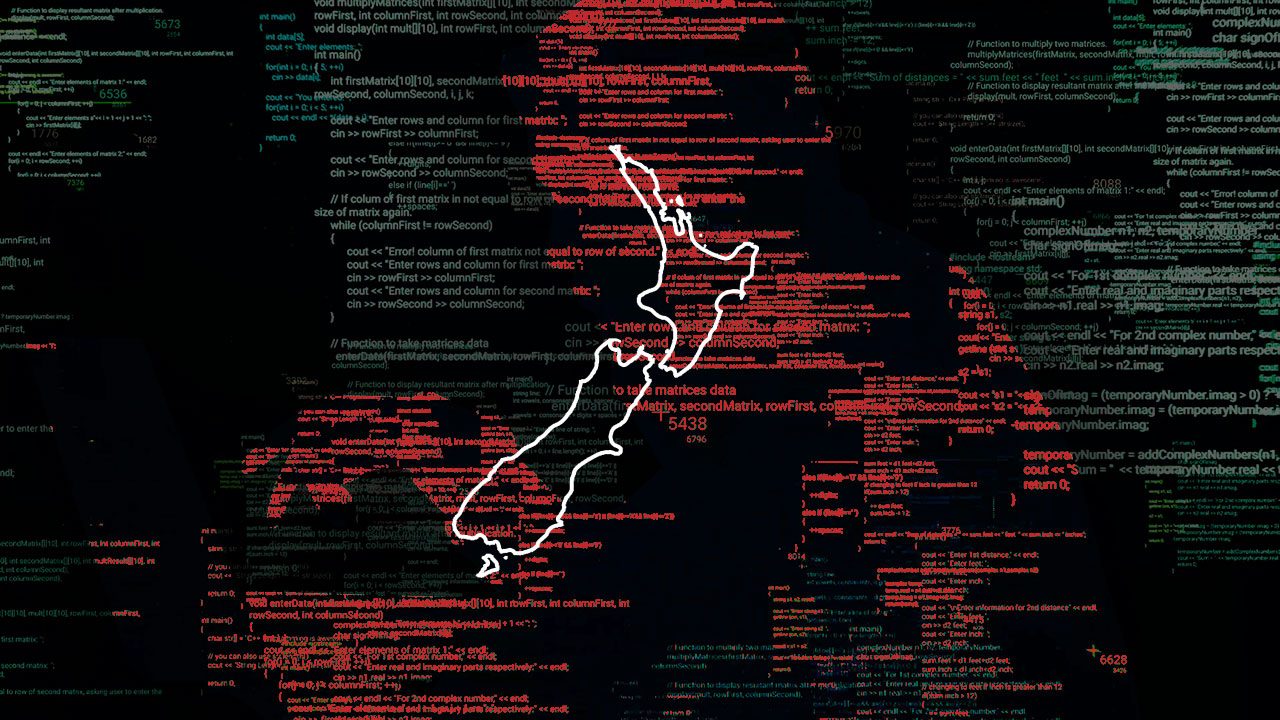In recent years, the world has witnessed a growing menace posed by cyber-attacks and hacking originating from China.
From targeted breaches of government institutions to sophisticated espionage campaigns aimed at undermining democratic processes, these cyber activities have raised significant concerns among nations globally.
With increasing frequency and sophistication, China-based cyber attacks have become a focal point of international cybersecurity and diplomatic relations discussions.

New Zealand Strong Warning
The New Zealand government announced on Tuesday that it had expressed concerns to the Chinese government regarding its suspected involvement in a cyber intrusion targeting New Zealand’s parliament in 2021. The breach was uncovered by the nation’s intelligence services.
The disclosure of information accessed through malicious cyber means aimed at New Zealand’s parliamentary bodies coincides with accusations from Britain and the U.S. against China for engaging in extensive cyber espionage; both New Zealand and Australia have criticized this broader pattern of behaviour.
New Zealand’s Foreign Minister, Winston Peters, stated in a release, “Foreign interference of this kind is intolerable, and we have urged China to abstain from such actions in the future.”
He mentioned that the Chinese ambassador was informed of concerns over cyber activities linked to Chinese government-sponsored groups targeting democratic institutions in New Zealand.
China’s Response
A representative from the Chinese Embassy in New Zealand responded via email, dismissing the accusations as baseless and irresponsible.
They expressed dissatisfaction and strong opposition to New Zealand’s authorities, asserting, “We have never, nor will we ever, interfere in the internal affairs of other nations, including New Zealand. Accusations of foreign interference against China are entirely unfounded.”
Earlier on Tuesday, the government stated that its communications security bureau (GCSB), responsible for cybersecurity and signals intelligence, had established connections between a Chinese state-sponsored entity identified as Advanced Persistent Threat 40 (APT40) and cyber intrusions targeting New Zealand’s parliamentary services and counsel office in 2021.
The GCSB identified APT40 as associated with the Ministry of State Security, revealing that APT40 had accessed significant information crucial for the functioning of the New Zealand government, though nothing sensitive or strategic had been removed.

Instead, the GCSB believed that the group had extracted more technically oriented information, enabling potentially more intrusive actions.
According to the GCSB, 23% of the 316 cyber incidents involving nationally significant organizations in the previous financial year were attributed to state-sponsored actors.
These attacks were not explicitly linked to China, as New Zealand had also condemned cyber activities conducted by the Russian government last year.
The utilization of cyber-enabled espionage operations to disrupt democratic institutions and processes anywhere is not tolerable,” stated Judith Collins, the minister overseeing the GCSB.
A joint statement from Australia’s Foreign Minister Penny Wong and Home Affairs Minister Clare O’Neil emphasized the ongoing targeting of democratic institutions and processes, stressing its implications for open societies like Australia. They deemed this behavior unacceptable and called for its cessation.
In 2019, Australian intelligence concluded that China was responsible for a cyber attack on its national parliament and the three largest political parties ahead of the general election. However, the Australian government never officially disclosed the perpetrators of these attacks.

China Targetting Millions Of Americans
Likewise, the US Justice Department and FBI revealed on Monday that millions of Americans’ online accounts have been ensnared in a “sinister” Chinese hacking scheme, which specifically targeted US officials.
Seven Chinese nationals face charges for orchestrating an extensive cyber-attack campaign, allegedly linked to a hacking operation spanning 14 years.
The US State Department has offered a reward of up to $10 million (£8 million) for any information leading to the apprehension of these individuals.
According to the Justice Department, the hackers aimed their attacks at US and foreign critics of China, as well as businesses and politicians.
They allegedly dispatched over 10,000 “malicious emails”, impacting numerous victims across various continents. This activity, described as a “prolific global hacking operation,” is purportedly supported by the Chinese government.
FBI Director Christopher Wray condemned China’s persistent efforts to undermine US cybersecurity and target Americans and their innovations, emphasizing the FBI’s unwavering dedication to combatting cyber espionage and asserting that such threats to national security and prosperity will not be tolerated.
A representative from the Chinese embassy in Washington DC criticized the conclusions drawn by relevant countries, stating that they lacked valid evidence and made baseless accusations.
US prosecutors, in their indictment against the seven Chinese individuals, outlined charges stemming from hacking activities that led to the compromise of work accounts, personal emails, online storage, and telephone call records.
The accused individuals allegedly sent emails that appeared to originate from reputable news outlets or journalists, containing concealed tracking links. Upon opening these emails, recipients’ information, including their location and IP addresses, was purportedly transmitted to a server controlled by the defendants, facilitating further targeted hacking endeavors.
According to US prosecutors, this acquired information enabled the execution of more sophisticated hacking methods, such as compromising recipients’ home routers and other electronic devices.
In addition to targeting US government officials at entities like the White House and State Departments, as well as their spouses, the defendants are also accused of targeting dissidents abroad.
For instance, the Justice Department cited an instance where the individuals successfully infiltrated Hong Kong pro-democracy activists and their associates across various locations, including Hong Kong and the United States, using identical malware.
Furthermore, US companies fell victim to these hacking activities, with the defendants allegedly targeting various sectors including defense, information technology, telecommunications, manufacturing, trade, finance, consulting, legal, and research industries.
Among the targeted entities were defense contractors providing services to the US military and a major provider of 5G network equipment, as highlighted by the Justice Department.

United Kingdom Sanctions China
Similarly, the UK government has officially attributed “malicious” cyber operations against Members of Parliament (MPs) and the Electoral Commission to China.
Sanctions have been imposed on two individuals and a company believed to be involved in the cyber-attacks.
According to Deputy Prime Minister Oliver Dowden, these sanctioned entities sought to obtain information from MPs critical of Beijing and potentially accessed data from up to 40 million voters.
The Chinese embassy in the UK has dismissed these allegations as “completely unfounded”, denouncing them as “malicious slander”.
The individuals sanctioned by the UK include Zhao Guangzong and Ni Gaobin, along with the company Wuhan Xiaoruizhi Science and Technology Company Ltd.
The British government claims this company operates on behalf of the Chinese state-affiliated cyber espionage group Advanced Persistent Threat Group 31 (APT31).
The sanctions imposed by the UK will freeze assets and prohibit UK citizens and businesses from engaging in transactions with these entities. Additionally, a travel ban will prevent them from entering or staying in the UK.
Mr. Dowden emphasized that the UK government will not tolerate malicious cyber activities, reaffirming the protection of democratic systems and values as a top priority.
The Chinese ambassador will be summoned to explain “China’s conduct in these incidents”, added Mr. Dowden.
The cyber-attack on the UK Electoral Commission, occurring between August 2021 and October 2022, is considered one of the most significant in British history.
While databases containing personal information and sensitive emails were accessed, Mr. Dowden assured that the security of elections remained intact and did not pose a risk to those affected.

The Damning Moment
The MPs targeted belong to the Inter-Parliamentary Alliance on China, a group focused on scrutinizing and often criticizing Beijing’s activities.
Former Conservative leader Sir Iain Duncan Smith, ex-minister Tim Loughton, and SNP’s Stewart McDonald encountered harassment, attempted hacks, and impersonation by groups aiming to influence foreign officials.
According to Mr. McDonald, the UK’s response feels inadequate, akin to facing a “gun fight with a wooden spoon.”
All three MPs advocate for stronger measures from the UK, urging the designation of China as a “threat.”
Sir Iain calls for additional sanctions against Chinese government figures, criticizing the deputy prime minister’s statement as lacking significant impact.
Nevertheless, he views the announcement as a pivotal moment where the UK asserts its stance on human rights and an international rules-based system.
Sir Iain reveals that a “wolf warrior,” a fervent advocate for the Chinese government, impersonated him via email, falsely suggesting a change in his views on Beijing.
He proposes placing China in the “enhanced tier” of the foreign influence registration scheme, intensifying scrutiny on Chinese government-backed activities in the UK.
Sir Iain emphasizes the need for the West to confront this challenge to fundamental values such as democracy, human rights, and freedom, which are under threat from adversaries lacking these virtues.
Both Sir Iain and Mr. Loughton were among nine UK citizens sanctioned by China for exposing human rights violations against the Uighur Muslim minority.
Mr. Loughton warns that China seeks to influence elections and democracies, stressing the necessity for robust actions to convey the unacceptability of such behavior and enforce consequences.

Government Concern
Labour has expressed its willingness to support the government in countering state actors attempting to disrupt or undermine the electoral process.
Mr. Dowden attributed the identification of China-affiliated organizations and individuals behind cyber operations to the Defending Democracy taskforce, a committee dedicated to monitoring election threats.
The decision to impose sanctions on groups connected to China, a fellow member of the UN Security Council, represents an escalation in diplomatic tensions between the two nations.
This marks a significant departure from a few years ago when British leaders sought to foster a “Golden Age” relationship with China. Notably, David Cameron, who was Prime Minister at the time, now serves as the Foreign Secretary.
Lord Cameron provided a comprehensive overview of global affairs during a briefing with around 40 Conservative MPs and peers at a meeting of the backbench 1922 Committee.
While discussions during the session before the Easter recess mainly centered on the UK’s stance on the UN Security Council Resolution on Gaza, some MPs noted a shift in the UK’s approach towards China under Lord Cameron’s leadership.
Labour has called for an investigation into Lord Cameron’s role as vice-president of a UK-China investment fund, suggesting it may have been aimed at bolstering Chinese investment and the broader China brand.
The Electoral Commission acknowledged last August’s attacks, revealing that “hostile actors” accessed electoral registers and breached its emails and control systems.
However, it clarified that these incidents had no impact on elections or voter registration status. Steps have been taken to enhance security measures since then.
In response to British allegations of Chinese state involvement, the Chinese embassy denounced them as political manipulation and baseless slander. China urged the UK to refrain from spreading false information and interfering in its internal affairs.
The UK government’s concerns over Chinese espionage and interference in parliamentary affairs have been mounting.
This includes the arrest of a parliamentary researcher under the Official Secrets Act in September 2023 on charges of spying for China, and an alert issued a year prior regarding the activities of UK-based lawyer Christine Lee, highlighting growing scrutiny and measures to safeguard national security against foreign influence.
